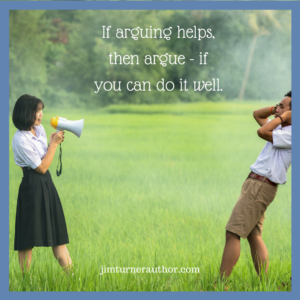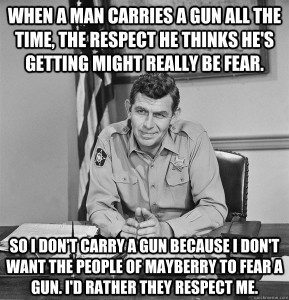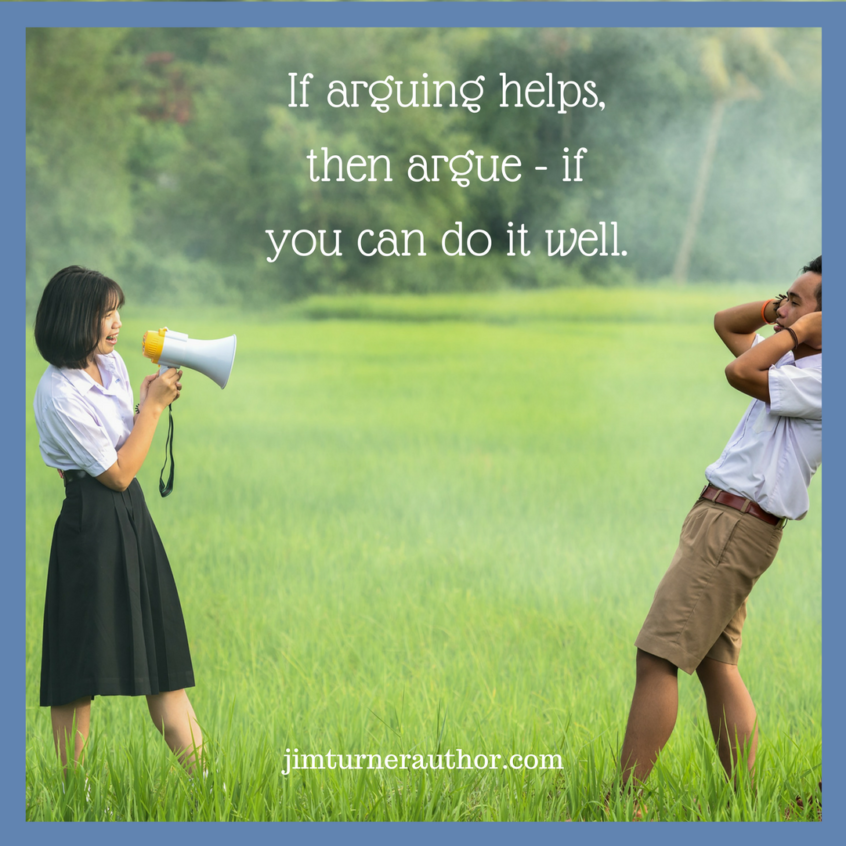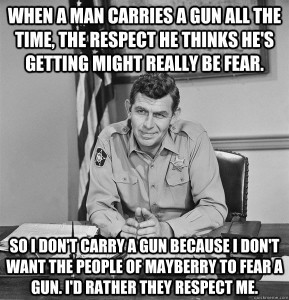 How did that last argument go? Was it hysterical, historical, his fault, her fault?
How did that last argument go? Was it hysterical, historical, his fault, her fault?
If any of these actually describe the argument, it probably didn’t go well. If it was hysterical – well, we all know how that one goes. Whoever gets the craziest wins (reality is, both lose). Historical – we’ll talk about that one in a moment. His fault, her fault – then you are still arguing in your mind and heart – nothing got resolved. We may revisit those with another post but let’s concentrate on the historical for now.
Ever been in an argument where the other person remembers every nuance of your past actions with crystal clear accuracy – then turns them like a knife back at you? Historical. How about when they play the victim and keep stabbing themselves with old hurts you caused? Historical. And those who can regurgitate every harsh word you spoke well after you said you were sorry? Historical. What about those who never, ever accept ‘I’m sorry, please forgive me’ as an answer? Historical.
If the above causes you to wince or draw back in pain (emotional, mental, or physical), then you know exactly what I’m getting at. People with long memories and the will to use them to harm or manipulate…grieve me. Along with making me want to turn invisible.
 Ok, if you are the person who gets historical because you still have unresolved hurt, I get it. Maybe this post link will help you with that. I also understand some have damage so deep that they haven’t been able to move forward in history. I’m not qualified to help there so please don’t be offended if this short post seems to trivialize your pain. It’s not meant to.
Ok, if you are the person who gets historical because you still have unresolved hurt, I get it. Maybe this post link will help you with that. I also understand some have damage so deep that they haven’t been able to move forward in history. I’m not qualified to help there so please don’t be offended if this short post seems to trivialize your pain. It’s not meant to.
For those of us who have at any point fallen to the temptation to become the Head of the History Department at the University of Conflict – this post is written.
Before we go on, let me confess. I actually think arguing is good. Conflict exists. Unresolved conflict kills people slowly. If arguing helps, then argue – if you can do it well. And that’s what I want to discuss, ‘How to Argue Real Good’, pardon the colloquial grammar but I’m setting the mood.
[clickToTweet tweet=”If arguing helps, then argue – if you can do it well.” quote=”If arguing helps, then argue – if you can do it well.”]I loved the Andy Griffith Show as a child. In fact, I still love it. I could bing watch it for hours. The show had a huge secret lesson I didn’t discover till I was an adult though. Andy was the sheriff of one of the most peaceful towns anyone could ever hope for. He was the calming influence, the gentle lawman, the rock of sensibility in the town. He seemed to always have the answer for any conflict that arose. Every day ended with a smile or a song. What a great place. The thing I never noticed about Andy’s peacemaking ability was that Andy didn’t carry a gun.
I thought about that awhile. Many would make the argument that the gun is how you keep peace. Without it, you are powerless to stop the bad guys. I think that’s how some use history. As a gun they pull out of the holster to threaten and back down those they see as the bad guy. Guns are great when they’re in the right hands, right? (NOTE: This is not a gun rights post – just an illustration, so please – no NRA rants).
I thought of a simple lesson and single point to make from Andy’s days as sheriff. You don’t need a gun to resolve conflict. If you are an historical sharp shooter, you spent a lot of hours practicing. If you are good with your weapon, you had to rehearse many times. You had to fire many rounds. In case you didn’t notice, those bullets have the power to kill relationships. You need to stop shooting.
If history is your weapon, this is how you stop using it.
First, stop reloading.
Fear drives you to keep the chambers full. You’re afraid that if you don’t remember, it will just happen again. And you’ll get hurt again. And you are sick of being hurt. It’s a cycle with no end. Fear is the finest way to get stuck in lunacy. You MUST find a way to forget the past. Doing that is different for everyone so I won’t try to tell you how but if you want to live without fear the past has to die. Turn your gun on it.
[clickToTweet tweet=”Fear is the finest way to get stuck in lunacy. ” quote=”Fear is the finest way to get stuck in lunacy. “]Second, put the gun down.
You can stop reloading a gun that still has bullets in it. If you don’t put it down, it can still kill. That’s a principle of forgetting the past. We have to do it over and over again. The pathways of memory in our brains are well worn. The past knows the way to get back to the front of our mind. Holding the memory gun gives you the power to pull the trigger. You’ll have to spend as much time practicing forgetting as you did practicing shooting. Every time the memory resurfaces, you have to resist picking it back up.

Third, lock the gun up and throw away the key.
The only sure way to stop firing is to get rid of the gun. No bullets, no gun, no danger. This means a permanent departure from your historical pattern. Your way of being. You have to change. Change starts with an old term that’s been widely punned. It starts with repentance. It sounds all religious and pompous to our culture but it simply means to realize that something isn’t working and to turn away from it – for good.
That’s it. I’m not going to get all psychoanalytic on you and tell you to take baby steps. If you want to stop wounding the ones you love with your fifty calibre memory, then start forgetting the past. Do it regardless of the response you get. Why does it matter that the person keeps doing the same thing? Forgive them and forget it. Start each conflict fresh and learn to argue real good without a weapon. Everyone wins that way. And stays alive.


